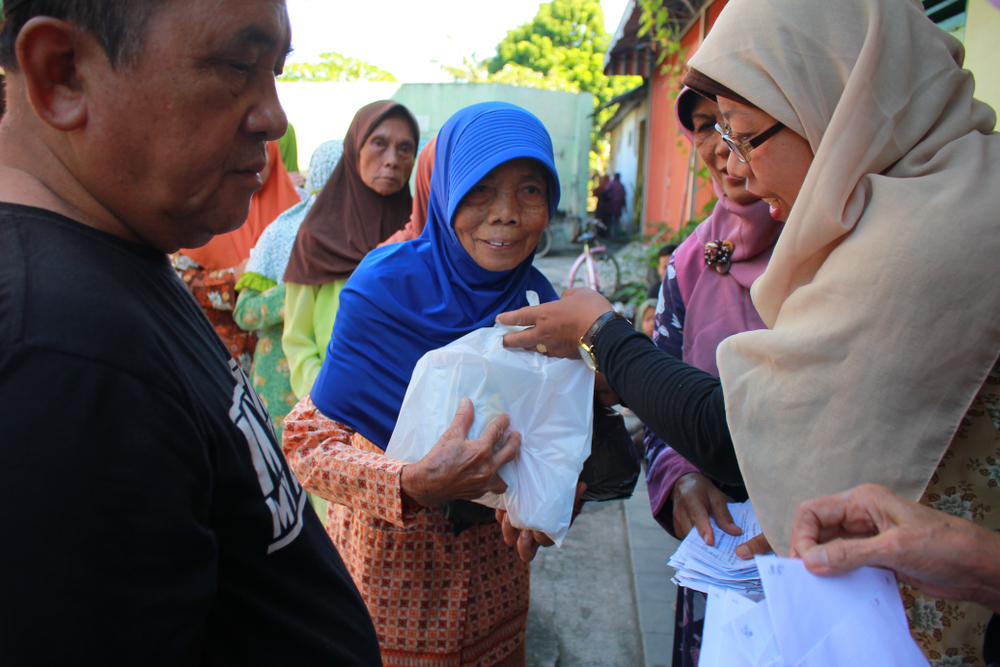Indonesia’s National Zakat Index aiming for better sector management, stakeholder cooperation
JAKARTA - Indonesia launched a National Zakat Index (NZI) last month to track the management and performance of its zakat institutions, Arifin Purwakananta, Director of Amil at the National Zakat Board (BAZNAS) told Salaam Gateway.
NZI measures the collection and distribution of zakat across its value chain, from the regional to national aggregate levels. The Index will start tracking zakat in the first quarter of 2017 and it will be updated twice a year.
“The index is aimed at strengthening zakat management quality and developing cooperation among Islamic stakeholders. We would like to see more of such an index that can be recognised globally,” said Purwakananta.
There is currently no standard measurement for zakat management and performance at the national or international levels.
“We hope this index will trigger more universal and global zakat indexes that can be used by wider stakeholders. NZI can be used by regulators like us, charity organisations, and the public in evaluating the development of zakat, infaq and sadaqat,” said Purwakananta.
According to Purwakananta, Indonesia’s zakat allocation to collection ratio (ACR), which measures how effectively a zakat institution distributes zakat funds from what it collects, was only 45 percent last year. The target is 90 percent.
Purwakananta said this could become more challenging as zakat contributions will increase significantly in line with growth of the country's economy, population and the middle class.
“The average annual growth of zakat, infaq and sadaqat collected by the certified zakat institutions from 2002 to 2015 is 38.8 percent. So we envision it will be very challenging moving forward,” he said.
As of August 2016, total collected zakat, infaq and sadaqat was 3.65 trillion Indonesia rupiah ($75 million), according to BAZNAS. Individual muzakki payers made up almost 80 percent of this figure.
Around 75 percent of the funds were distributed to the poor and needy, which is one of the eight categories of recipients of zakat.
“As a standard measurement for national zakat performance, NZI should be evaluated every three to five years. In this way it will always be able to meet the adjustment of context in social, economic, and political situations, as well as to be precise and accurate,” said Purwakananta.
ABOUT INDONESIA'S NATIONAL ZAKAT INDEX (NZI)
NZI was formulated through two focus group discussions with zakat experts from BAZNAS, Zakat Forum (FOZ), Indonesian Ulama Council (MUI), economists from the central bank (BI) and academicians in the field of Islamic economics. Following the two sessions, experts were consulted for their feedback, especially in determining the weighted score of each dimension, indicators and variables.
It consists of two dimensions: macro and micro. The macro dimension considers regulation, government budget support, and the zakat institutions database. The micro dimension consists of institutional and zakat impact indicators.
Final NZI scores will range from 0.00 to 1.00, with higher values indicating better zakat performance.
|
INDONESIA NATIONAL ZAKAT INDEX (NZI) COMPONENTS (Source: BAZNAS) |
|||||
| DIMENSION | WEIGHTED SCORE | INDICATOR | WEIGHTED SCORE | VARIABLE | WEIGHTED SCORE |
| MACRO | 0.40 | Regulation | 0.30 | Regulation | 1.00 |
| Gov't Budget | 0.40 | Gov't Budget | 1.00 | ||
| Zakat Institution Database | 0.30 | Number of official zakat institutions | 0.33 | ||
| Individual muzakki ratio | 0.33 | ||||
| Enterprise muzakki ration | 0.33 | ||||
| MICRO | 0.60 | Institutional | 0.40 | Collection | 0.30 |
| Management | 0.20 | ||||
| Distribution | 0.30 | ||||
| Reporting | 0.20 | ||||
| Impact of Zakat | 0.60 | Material and spiritual | 0.33 | ||
| Education and health | 0.33 | ||||
| Independence | 0.33 | ||||
© SalaamGateway.com 2017 All rights reserved
